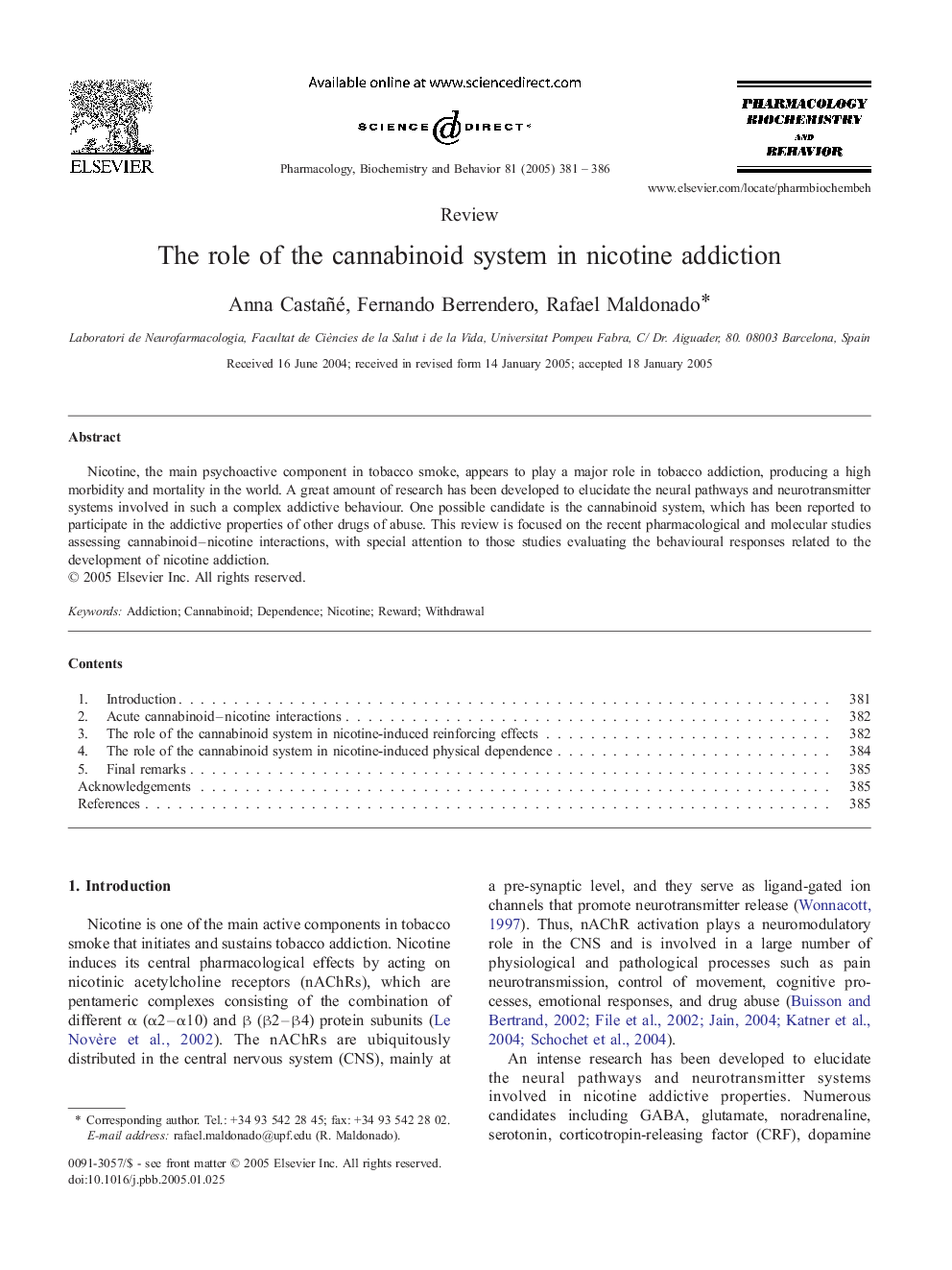| Article ID | Journal | Published Year | Pages | File Type |
|---|---|---|---|---|
| 10838732 | Pharmacology Biochemistry and Behavior | 2005 | 6 Pages |
Abstract
Nicotine, the main psychoactive component in tobacco smoke, appears to play a major role in tobacco addiction, producing a high morbidity and mortality in the world. A great amount of research has been developed to elucidate the neural pathways and neurotransmitter systems involved in such a complex addictive behaviour. One possible candidate is the cannabinoid system, which has been reported to participate in the addictive properties of other drugs of abuse. This review is focused on the recent pharmacological and molecular studies assessing cannabinoid-nicotine interactions, with special attention to those studies evaluating the behavioural responses related to the development of nicotine addiction.
Related Topics
Life Sciences
Biochemistry, Genetics and Molecular Biology
Biochemistry
Authors
Anna Castañé, Fernando Berrendero, Rafael Maldonado,
